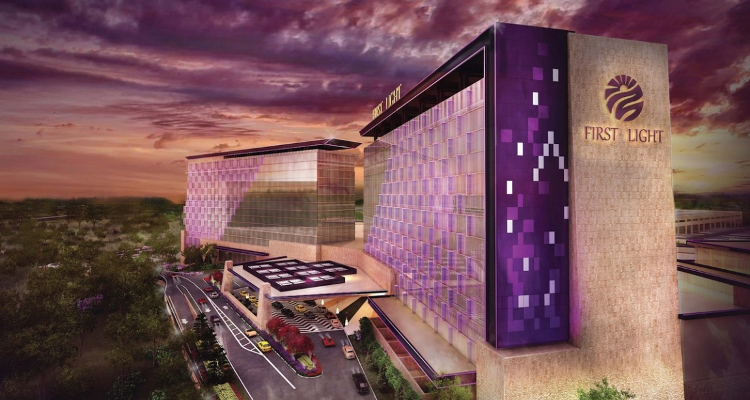As the First Light Resort And Casino scheme from the federally-recognized Mashpee Wampanoag Tribe languishes through the courts, the Massachusetts Gaming Commission could be asked to take a second look at the $677 million proposal to build a casino in the nearby city of Brockton.
According to a report from The Boston Globe newspaper, April saw the Massachusetts Gaming Commission vote against approving the Brockton plan, which would have seen operator Rush Street Gaming build a casino on the site of the Brockton Fairgrounds. In its decision, the regulator declared that such a development would have faced strong competition from the $1 billion tribal casino that was set to open just 20 miles away in Taunton.
Federally-recognized tribes do not need state approval to build a casino on their reservations and a 2015 land-into-trust decision from the Bureau Of Indian Affairs effectively gave the Mashpee Wampanoag Tribe permission to begin construction of its Massachusetts casino, which was scheduled to open next summer offering some 1,900 slots alongside 60 table games.
The Mashpee Wampanoag Tribe broke ground on its casino development in April but was soon forced to halt construction after a federal judge ruled in favor of a group of local property owners and against the federal government’s original decision to grant the tribe a reservation. In his ruling, Judge William Young from the United States District Court For The District Of Massachusetts cited the 2009 decision from the United States Supreme Court in the case of Carcieri v Salazar and claimed that tribes could only be eligible for land-into-trust grants if they had been federally recognized at the time the passage of the landmark 1934 Indian Reorganization Act.
The newspaper reported that the Mashpees Wampanoag Tribe had only won federal recognition in 2007 while the federal government subsequently appealed Young’s ruling, which means the tribe could well face years of legal battles before finally winning the right to open its First Light Resort And Casino.
In the meantime, Bill Carpenter, the mayor for Brockton, told The Boston Globe that the casino proposal for his city now deserves a second look, especially with the real prospect of a new casino opening some 39 miles away in Tiverton, Rhode Island, pending the outcome of a November ballot referendum.
“To sit by idly while the state next to you grabs the market, that would be hard to justify to taxpayers,” Carpenter told the newspaper.
The Brockton mayor also cited the success of the Plainridge Park Casino, which was opened in June of 2015 offering over 1,200 slots. The Penn National Gaming Incorporated facility some 20 miles from Brockton saw revenues in May rise by 1.3% month-on-month to hit $13.48 million while it contributed $5.39 million in tax.
“I hope the Massachusetts Gaming Commission would give reconsideration to our application,” said Carpenter. “That would be the fair and equitable thing to do. We are a poor majority-minority city with a lot of families that need the kind of jobs a casino would create.”
Neil Bluhm, the businessman behind the bid to bring a casino to Brockton bid, told the newspaper that he remains “very interested in pursuing a casino in Brockton” and noted that the city, which is one of the eastern state’s poorest, “could use the jobs and revenue”.
“A casino in Brockton will be a catalyst for economic development and also contribute badly needed tax revenue to the Commonwealth,” said Bluhm.
For its part, the Massachusetts Gaming Commission could choose to revisit the Brockton bid, which is reportedly ready to break ground and would bring in some $85 million in state licensing fees, or begin the whole process anew via a lengthy path of local referendum votes, negotiations with surrounding cities and towns and extensive background checks on developers.
“The statute is clear, the Massachusetts Gaming Commission has the authority at any time to choose to conduct a commercial process for the award of a license [in southeastern Massachusetts],” read a statement from the Massachusetts Gaming Commission.
However, Stephen Crosby, Chairman for the Massachusetts Gaming Commission, recently told local public radio station WGBH that his body was “just going to sit tight”.
“We do what we’ve been doing for five years, try to wait and figure out what’s happening with the tribe,” said Crosby.



